Best of #econtwitter - Week of October 9, 2022 [2/3]
Oct 09, 2022
Welcome readers old and new to this week’s edition of Best of Econtwitter. Please submit suggestions — very much including your own work! — over email or on Twitter @just_economics.
This is part two of three.
Paper summaries

Johannes Haushofer@jhaushofer
In July 2018, I first came across a paper called “The Sad Truth About Happiness Scales” by Tim Bond and Kevin Lang. My heart sank when I read it (as did that of others, possibly including @ImranRasul3). 1/n
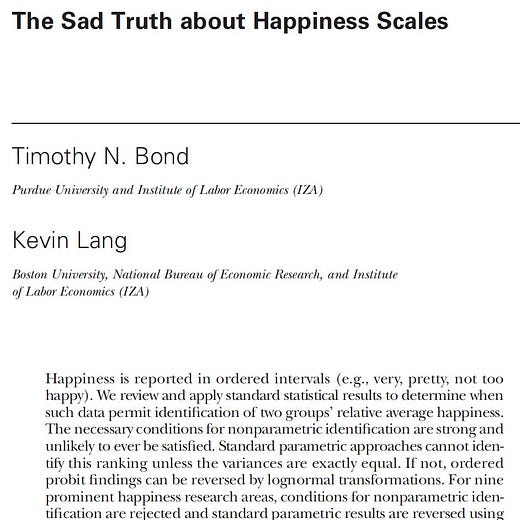
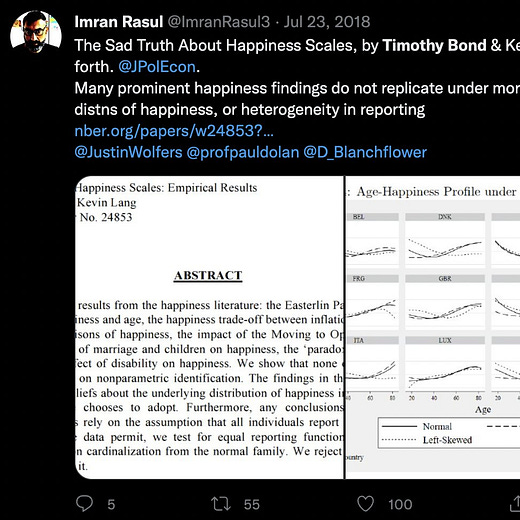
10:31 PM · Oct 6, 2022
324 Reposts · 1.35K Likes

Johannes Haushofer@jhaushofer
In other words: happiness ratings might be on an interval scale if their relationship to behaviors is *linear*.
That’s exactly what the PNAS paper shows. This is very exciting: I see light at the end of the tunnel that Bond and Lang put us in!
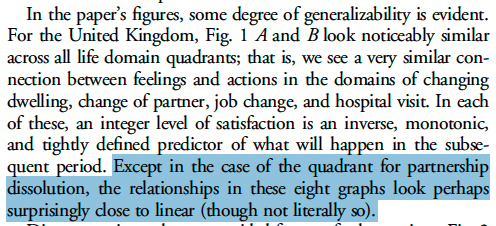
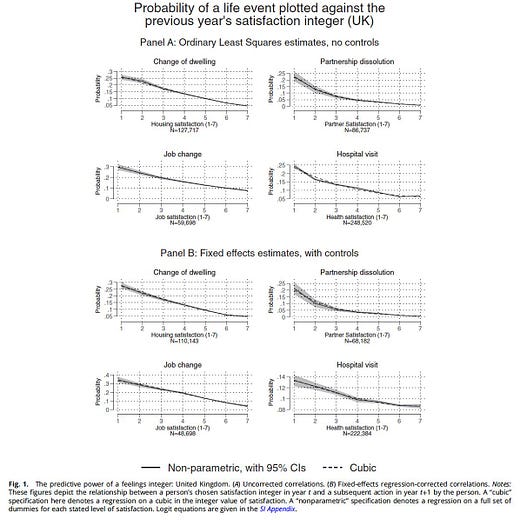
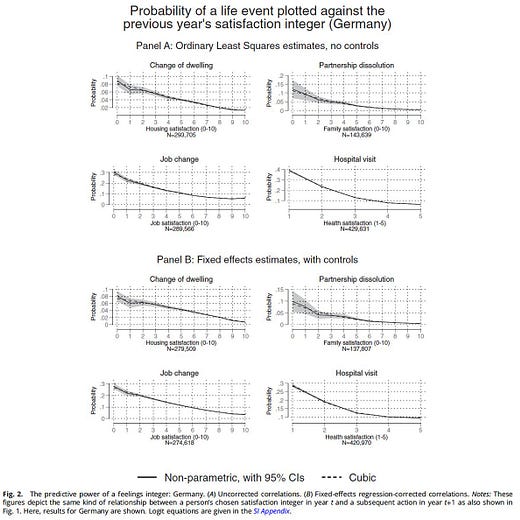
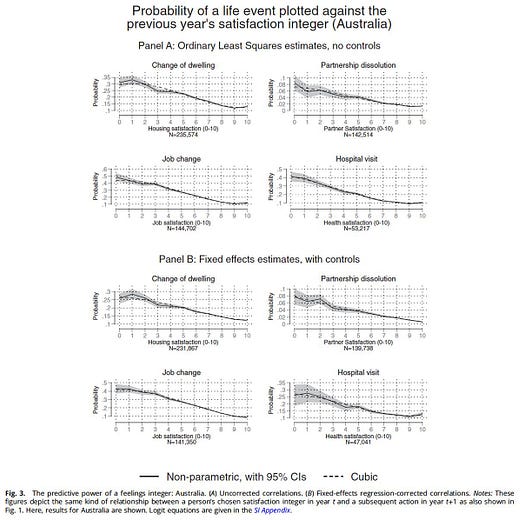
10:31 PM · Oct 6, 2022
3 Reposts · 92 Likes
^and:

Mark Fabian@MarkFabian_PAIS
I see a lot of psychologists smugly poking fun at this paper. OK, have a laugh. That's fair.
But perhaps also recognise that a lot of people think feelings measures are imprecise BS. & who knows, maybe economists can help?
🧵👇
pnas.org/doi/full/10.10…
3:20 PM · Oct 5, 2022
93 Reposts · 495 Likes

Kevin Bryan@Afinetheorem
@ShengwuLi Whole PNAS Likert debate was literally about proving conditions under which these subjective scores have meanings in contexts like averages over time. It's not just neutral epistemic differences - using methods/techniques/ideas w/o being logically clear is thought, not research.
8:30 PM · Oct 7, 2022
^see also: “People sometimes forget that academic disciplines have varying epistemic standards…”

Xavier Jaravel@XJaravel
1/n Did you ever wonder how we should measure inflation when preferences vary with income? It turns out it is still an open research question: we propose a new approach in recent work with @DanialLashkari
Here's a thread to illuste key ideas
👇👇👇👇👇
xavierjaravel.com/_files/ugd/bac…

8:23 PM · Oct 6, 2022
34 Reposts · 117 Likes
^file under: inflation is conceptually always even more complicated than you think

B@BrettMatsumoto
New BLS working paper on rents in the CPI. Main results: 1) The divergence between private sources and the CPI is due almost entirely to the focus on new tenants (private measures) and all tenants (CPI). 2) CPI lags these measures by about 4 quarters.
bls.gov
9:21 PM · Oct 7, 2022
40 Reposts · 147 Likes
^file under: empirically measuring inflation is always even more complicated than you think

Beatrice Cherrier@Undercoverhist
In this important paper, Jennifer Burns unpacks the long process whereby Friedman came up with the permanent income hypothesis
It exemplifies how working on gender & credit issues in economics is akin to walking a tightrope & requires careful treatment
read.dukeupress.edu/hope/article-a…
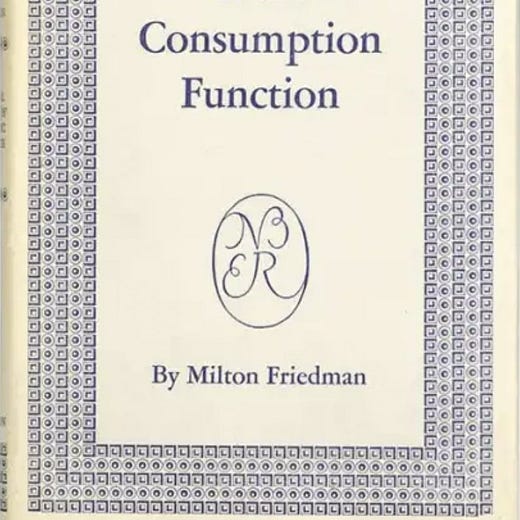

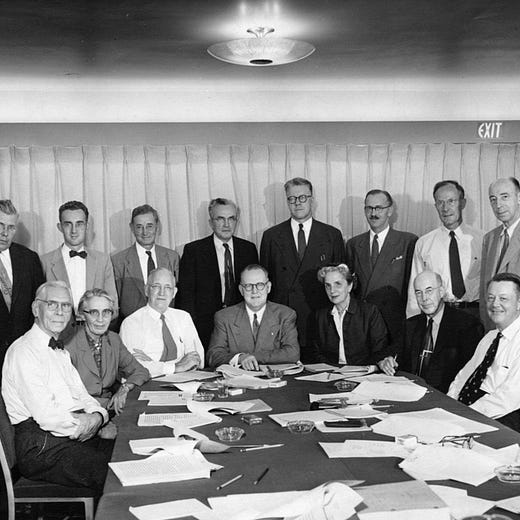
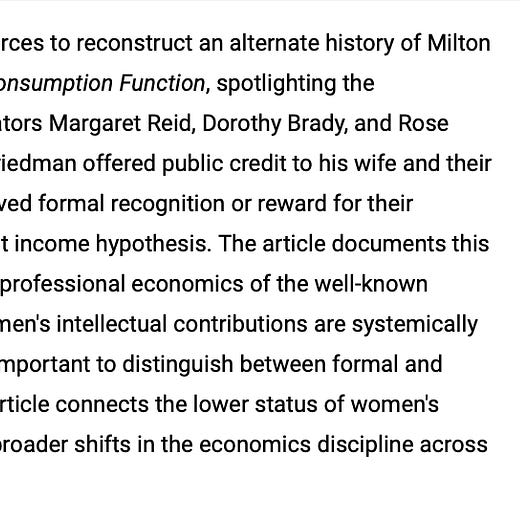
11:10 PM · Oct 3, 2022
31 Reposts · 88 Likes

Rafael Ch@raffa_ch
How do firms adjust to electoral uncertainty? By capturing the state in more direct forms.
See our new paper published in the Journal of Development Economics, “Political uncertainty and the forms of state capture” with the amazing @lwantchekon and Nathan Canen. (1/11)

5:26 PM · Oct 6, 2022
80 Reposts · 285 Likes

Joshua Deutschmann@JoshDeutschmann
🚨Now available online! Our new JDE paper (with @GarsJared JF Houde @MollyMLipscomb @LauraASchechter) studies the effects of privatizing the management of sewage treatment centers in Dakar. sciencedirect.com/science/articl…

2:09 PM · Oct 4, 2022
44 Reposts · 153 Likes

alex cardazzi@ACardazzi
🚨 (Revised) Working Paper Alert! 🚨
Lasting Impacts of Stop & Frisk: Evidence From The Housing Market in New York City
TLDR: Stop & Frisk is a disamenity. However, perhaps unintuitively, price increases in NYC were driven by white sellers.
Link: papers.ssrn.com/sol3/papers.cf…
papers.ssrn.com
Lasting Impacts of Stop & Frisk: Evidence From The Housing Market in New York City

7:36 PM · Sep 30, 2022
4 Reposts · 26 Likes

Jorge Pérez Pérez@jorpppp
We now have a draft of our working paper with @romandzarate @pipevial on transportation infrastructure and labor market power. #EconTwitter
Paper: bit.ly/3UZLWr5
A summary in three tweets 🧵 👇

10:13 PM · Oct 4, 2022
39 Reposts · 188 Likes
Interesting discussions

Ahmed Mushfiq Mobarak@mushfiq_econ
Should we celebrate or be concerned about the fact that @amazon/@Uber etc. now hire many Ph.D. economists?
A perspective from an academic investing time in training both Ph.D.s and MBAs [1/7]

The Economist @TheEconomist
Amazon now has some 400 full-time economists on staff, several times as many as a typical research university. Meanwhile, last year Uber hired a fifth of Harvard University’s graduating PhD class https://t.co/j3NeDrjO2Q
1:13 PM · Oct 7, 2022
84 Reposts · 615 Likes
^a lot of …replies…

